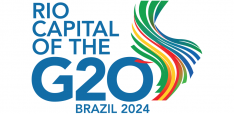Introduction: Digital Repression: Causes, Consequences and Policy Responses

Chris Ogden and Olivia Hagen introduce a new Global Policy e-book. The e-book's chapters will be serialised on Global Policy over the course of 2023. Please find the first chapter here.
In April 2022, a report by the investigative news outlet Inside Story revealed that financial journalist and editor Thanasis Koukakis had been targeted by "Predator" spyware (Mildebrath 2022b). Manufactured by Cytrox, the spyware infects a target's cellphone by delivering a one-time "phishing" link, enabling the operator to monitor every aspect of the target's cellphone (Marczak et al. 2021). Google and CitizenLab have asserted that the spyware has been primarily bought by government-backed actors (Lecigne and Resell 2022). Subsequent to the initial report, another news outlet, Reporters United, revealed that the Greek National Intelligence Service (EYP) had been monitoring Koukakis from June to August 2020; however, Koukakis was only made aware of this surveillance by CitizenLab in March 2022.
The hack had been undertaken with authorisation from prosecutor Vasiliki Vlachou, who oversees matters regarding the EYP, and has ties to other high-ranking government officials. Although the Greek government was cleared in an investigation regarding the wiretap (Mildebrath 2022b), days later it was made public that the EYP and Vlachou had authorised a wiretap of Nikos Androulakis, a member of the European Parliament and leader of the Greek opposition party Pasok. After reports implicated several more high-ranking officials, the Secretary-General to the Prime Minister, Grigoris Dimitriadis, and the EYP Director, Panagiotis Kontoleon, resigned. In November 2022, it was then revealed that more than thirty people had been victims of state-sanctioned mobile spyware. The Greek Prime Minister Kyriakos Mitsotakis has denied these accusations, which have been subsequently investigated by various prosecutors, including the European Parliament (Reuters 2022a).
~~~~~~~
The "Greek Watergate" is not an isolated incident. Following reports from CitizenLab, Amnesty International and eighteen other media organisations in the summer of 2021, it was uncovered that 50,000 persons within the EU have been targeted by spyware (In 't Veld 2022, 3). The Greece investigation became part of a more extensive European Parliament inquiry into the use of spyware by other EU countries, including Spain, Poland, Hungary and Cyprus. It has been reported that all EU Member States have acquired one or more commercial spyware products and that the NSO group sold its products to 14 Member States (Ibid, 4-5).
Such spyware, and its ever-widening use, is emblematic of the contemporary prevalence of digital repression as a way to monitor, control and coerce forms of political and social opposition. Specifically, technologies such a Predator and “Pegasus” (Gurijala 2021) have been linked to the murder of Saudi Arabian journalist Jamal Khashoggi and various human rights abuses (Mildebrath 2022a, 1). These tools are highly invasive, allowing operators total access to files, messages, metadata and communications of the person they target, all from a distance and without alerting the victim. The material obtained can then be used in order to intimidate, discredit and manipulate the victims (In 't Veld 2022, 3). The abuses perpetrated by spyware are not only gross violations of the right to privacy and civil liberties but also undermine democracy and democratic institutions, which are the cornerstones of the legal order in Europe and the western world (Liger and Gutheil 2022, 8-9).
The utilisation of spyware is part of a global trend involving the deployment of modern internet and communication technologies (ICTs) - the internet, computer, mobile phone, and social media (Diamond 2010, 70) – for purposes of social control and repression. For example, following nationwide protests in response to the murder of Mahsa Amini, the Iranian government shut down the internet and disrupted services to Instagram and Whatsapp (Nast 2022). In 2020, in Thailand, where the internet is severely restricted, authorities arrested and harassed internet users and pro-democracy leaders who criticised the monarchy (Freedom House 2021). Since 2016, the Chinese Communist Party has used facial recognition and emotion detection cameras, smart checkpoints and phone monitoring software (Roche and Leibold 2022) in order to surveil, oppress and arrest ethnic Uighurs in Xinjiang province (Human Rights Watch 2019). At the most extreme, in 2020 29 countries carried out a total 155 internal internet shutdowns, 109 of which were done by India, including for the whole year in the Kashmir region (KIO 2021).
Digital Repression as a Global Trans-Political Phenomenon
Steven Feldstein defines digital repression as ‘the use of information and communications technology to surveil, coerce, or manipulate individuals or groups in order to deter specific activities or beliefs that challenge the state’ (Feldstein 2021, 25), which enhances a state’s ability to carry out “traditional” modes of repression. Such a definition allows for the investigation of digital repression in a range of regime types, from authoritarian regimes to democracies, so as to better comprehend how governments employ repressive digital tactics and for what purposes. As shown by the essays in this volume, this definition will help interested readers to better understand how digital repression is manifesting in different parts of the world and vitally underscores that it is a global phenomenon that now requires global policy responses.
The rise of digital repression arrived with the spread of ICTs and social media in the early 2000s. It was initially believed that these technologies would help end the tyrannical reign of autocrats around the world. Earlier research offered a theory of "liberation technology", arguing that ICTs were powerful tools which would empower citizens to collectively mobilise against their repressive rulers (Gohdes 2020; Weidmann and Rød 2019). Such normative arguments as per the internet's positive potential exploded after the Arab Spring, when social media helped empower activists to coordinate protests which helped topple regimes in Libya, Egypt and Tunisia. So-called "cyberoptimists" argued that they have the ability to disrupt authoritarian regimes, facilitate popular protest, contribute to regime reforms and transitions, and even spread democracy across the globe.
However, it also became clear that these new technologies, whilst giving voice to activists around the globe, also served to ‘supercharge long-standing authoritarian survival tactics’ (Kendall-Taylor, Frantz, and Wright 2020). As such, aspiring "digital dictators" began using technology to control, manipulate, surveil and repress their citizens to sustain their political authority (Feldstein 2021, 23-24). China is furthermore exporting the technologies underpinning its massive online censorship and surveillance system. Such "algorithmic authoritarianism" includes the selling of intelligent monitoring systems and facial recognition technology; the training of local media elites and government officials concerning new media or information management; and dozens of countries buying telecom infrastructure, internet and mobile networking equipment installed by Chinese companies (Shahbaz 2018).
Such dangers are also evident within mature democracies. Coupled with business models that harvest and monetise personal data, the dominance of companies such as Facebook and Google are incompatible with the right to privacy, and 'pose a serious risk to a range of other rights, from freedom of expression and opinion, to freedom of thought and the right to non-discrimination' (Amnesty International 2019). In April 2021, investigators revealed that Facebook officials' repeatedly allowed world leaders and politicians to use its platform to deceive the public or harass opponents despite being alerted to evidence of the wrongdoing' (Wong 2021). This practice included in India, where fake accounts were allowed to inflate the popularity of leaders (months after Facebook was alerted to the problem), as well as across Europe, Asia and the Americas (Wong and Ellis-Petersen 2021). Such a confluence has led to declining internet freedom from 2010 to 2018, as the rise of "digital authoritarianism" that is eroding global freedoms of speech, the press, assembly and petition (Shahbaz 2018).
Argument & Structure
The contributors to this serialised e-book argue that ICTs are tools which can be used for both virtuous and wicked purposes. As such, its essays investigate different dimensions of digital repression in order to understand how and why governments employ repressive digital tactics. While autocrats more widely employ digital repression, it is paramount to understand that democracies also use repressive digital tactics for various reasons. By looking at a range of regime types, this volume increases policymakers' and researchers' understanding of the topic, and underlines the threat that digital repression poses to internet freedom and democracy around the globe.
Written by a group of the world's leading academic and policy experts, this forensic exposition of "digital repression" proceeds along four core themes. The first underscores how different digital techniques are used in digital oppression, how they differ in outcomes, and why some states employ digital repression. The second theme then probes who is responsible for the rise of digital repression and the role that states and private companies have in spreading its usage. In turn, the third theme highlights the consequences of digital repression and its dangers, before the final theme synthesises these perspectives to offer effective and practical policy responses for all key global stakeholders.
Dr Chris Ogden is Senior Lecturer / Associate Professor in Asian Security and Asian Affairs in the School of International Relations at the University of St Andrews, Scotland. His research interests concern the global rise of India and China, great power politics, shifting world orders, authoritarianism, the Asian Century, Hindu nationalism, and the interplay between national identity, security and domestic politics in South Asia (primarily India) and East Asia (primarily China). Chris’ latest book concerns The Authoritarian Century: China's Rise and the Demise of the Liberal International Order (Bristol UP) and he was also the Series Consultant for the 2023 BBC Documentary Series, India: The Modi Question. For more information, see http://chris-ogden.org
Olivia Mills Hagen is currently in her final year of an MA (Hons.) in International Relations at the University of St Andrews and an intern for Global Policy Online. Before university, she decided to do her National Service and spent a year in Northern Norway in the Norwegian Army's Artillery Battalion. During her time at St Andrews, Olivia has been the director of the Lumsden Leadership Summit, a platform that invites successful and inspiring women to speak to inspire the student body and help them become the next generation of leaders. As the director, she focused the summit on sustainability and invited women whose diverse careers shared sustainability as the common denominator. Her academic research is centered on the intricate and multifaceted phenomenon of digital repression, as well as international development, foreign policy of India and China and force and statecraft.
Photo by Sora Shimazaki
References
Amnesty International. 2019 “Surveillance Giants: How the Business Model of Google and Facebook Threatens Human Rights”. Amnesty International. 21 November 2019. https://www.amnesty.org/en/documents/pol30/1404/2019/en/
Diamond, Larry. 2010. “Liberation Technology.” Journal of Democracy 21 (3): 69–83. https://doi.org/10.1353/jod.0.0190.
Feldstein, Steven. 2021. The Rise of Digital Repression How Technology Is Reshaping Power, Politics, and Resistance. Oxford: Oxford University Press USA - OSO.
Frantz, Erica, Andrea Kendall-Taylor, and Joseph Wright. 2020. “Digital Repression in Autocracies Users Working Paper SERIES 2020:27 the VARIETIES of DEMOCRACY INSTITUTE.” https://www.v-dem.net/media/publications/digital-repression17mar.pdf.
Freedom House. 2021. “Thailand: Freedom on the Net 2021 Country Report.” Freedom House. 2021. https://freedomhouse.org/country/thailand/freedom-net/2021
Gohdes, Anita R. 2020. “Repression Technology: Internet Accessibility and State Violence.” American Journal of Political Science 8 (10). https://doi.org/10.1111/ajps.12509.
Gurijala, Bhanukiran. 2021. “What is Pegasus? A Cybersecurity Expert Exaplians How the Spyware Invades Phones and What it Does When it Gets In”. The Conversation. August 9, 2021. https://theconversation.com/what-is-pegasus-a-cybersecurity-expert-explains-how-the-spyware-invades-phones-and-what-it-does-when-it-gets-in-165382
Human Rights Watch. 2019. “China’s Algorithms of Repression.” Human Rights Watch. May 1, 2019. https://www.hrw.org/report/2019/05/01/chinas-algorithms-repression/reverse-engineering-xinjiang-police-mass
In ‘t Veld, Sophie. 2022. “Committee of Inquiry to Investigate the Use of Pegasus and Equivalent Surveillance Spyware.” Www.europarl.europa.eu. European Parliament. https://www.europarl.europa.eu/committees/en/pega-findings/product-details/20221114CAN67684.
KIO. 2021. “Internet Shutdowns Report: Shattered Dreams and Lost Opportunities: A Year in the Fight to #KeepItOn.” KeepItOn. 3 March, 2021. https://www.accessnow.org/keepiton-report-a-year-in-the-fight/
Lecigne, Clement, and Christian Resell. 2022. “Protecting Android Users from 0-Day Attacks.” Google. May 19, 2022. https://blog.google/threat-analysis-group/protecting-android-users-from-0-day-attacks/
Liger, Quentin, and Mirja Gutheil. 2022. “The Use of Pegasus and Equivalent Surveillance Spyware - the Existing Legal Framework in EU Member States for the Acquisition and Use of Pegasus and Equivalent Surveillance Spyware” Www.europarl.europa.eu. https://www.europarl.europa.eu/thinktank/en/document/IPOL_STU(2022)740151
Marczak, Bill, John Scott-Railton, Bahra Abdul Razzak, Noura Al-Jizawi, Siena Anstis, Kristin Bredan, and Ronald Deibert. 2021. “Pegasus vs. Predator: Dissident’s Doubly-Infected IPhone Reveals Cytrox Mercenary Spyware - the Citizen Lab.” Citizenlab.ca. December 16, 2021. https://citizenlab.ca/2021/12/pegasus-vs-predator-dissidents-doubly-infected-iphone-reveals-cytrox-mercenary-spyware/
Mildebrath, Hendrik. 2022a. “Europe’s PegasusGate.” European Parliament. https://doi.org/10.1007/s11590-022-01905-6.
———. 2022b. “Greece’s Predatorgate: The Latest Chapter in Europe’s Spyware Scandal?” Www.europarl.europa.eu. https://www.europarl.europa.eu/thinktank/en/document/EPRS_ATA(2022)733637.
Nast, Condé. 2022. “Iran’s Internet Shutdown Hides a Deadly Crackdown.” Wired UK. September 23, 2022. https://www.wired.co.uk/article/iran-protests-2022-internet-shutdown-whatsapp
Reuters. 2022a. “EU Parliament to Help Probe ‘Inexcusable’ Spying on Greek Member.” Reuters, August 17, 2022, sec. Europe. https://www.reuters.com/world/europe/eu-parliament-help-probe-inexcusable-spying-greek-member-2022-08-17/
———. 2022b. “Greece to Ban Sale of Spyware amid Wiretapping Scandal.” Reuters, November 7, 2022, sec. Europe. https://www.reuters.com/world/europe/greece-ban-sale-spyware-amid-wiretapping-scandal-2022-11-07/
Roche, Gerald, and James Leibold. 2022. “State Racism and Surveillance in Xinjiang (People’s Republic of China).” The Political Quarterly 93 (3).
Shahbaz, Adrian. 2018. “Freedom on the Net 2018: The Rise of Digital Authoritarianism.” Freedom House. October, 2018. https://freedomhouse.org/report/freedom-net/2018/rise-digital-authoritarianism
Weidmann, Nils B., and Espen Geelmuyden Rød. 2019. The Internet and Political Protest in Autocracies. Oxford University Press. https://doi.org/10.1093/oso/9780190918309.001.0001.
Wong, Julia Carrie. 2021. “How Facebook Let Fake Engagement Distort Global Politics: a Whistleblower’s Account.” The Guardian. 12 April, 2021. https://www.theguardian.com/technology/2021/apr/12/facebook-fake-engagement-whistleblower-sophie-zhang
Wong, Julia Carrie and Hannah Ellis-Petersen. 2021. “Facebook Planned to Remove Fake Accounts in India – Until it Realized a BJP Politician was Involved.” The Guardian. 15 April, 2021. https://www.theguardian.com/technology/2021/apr/15/facebook-india-bjp-fake-accounts


